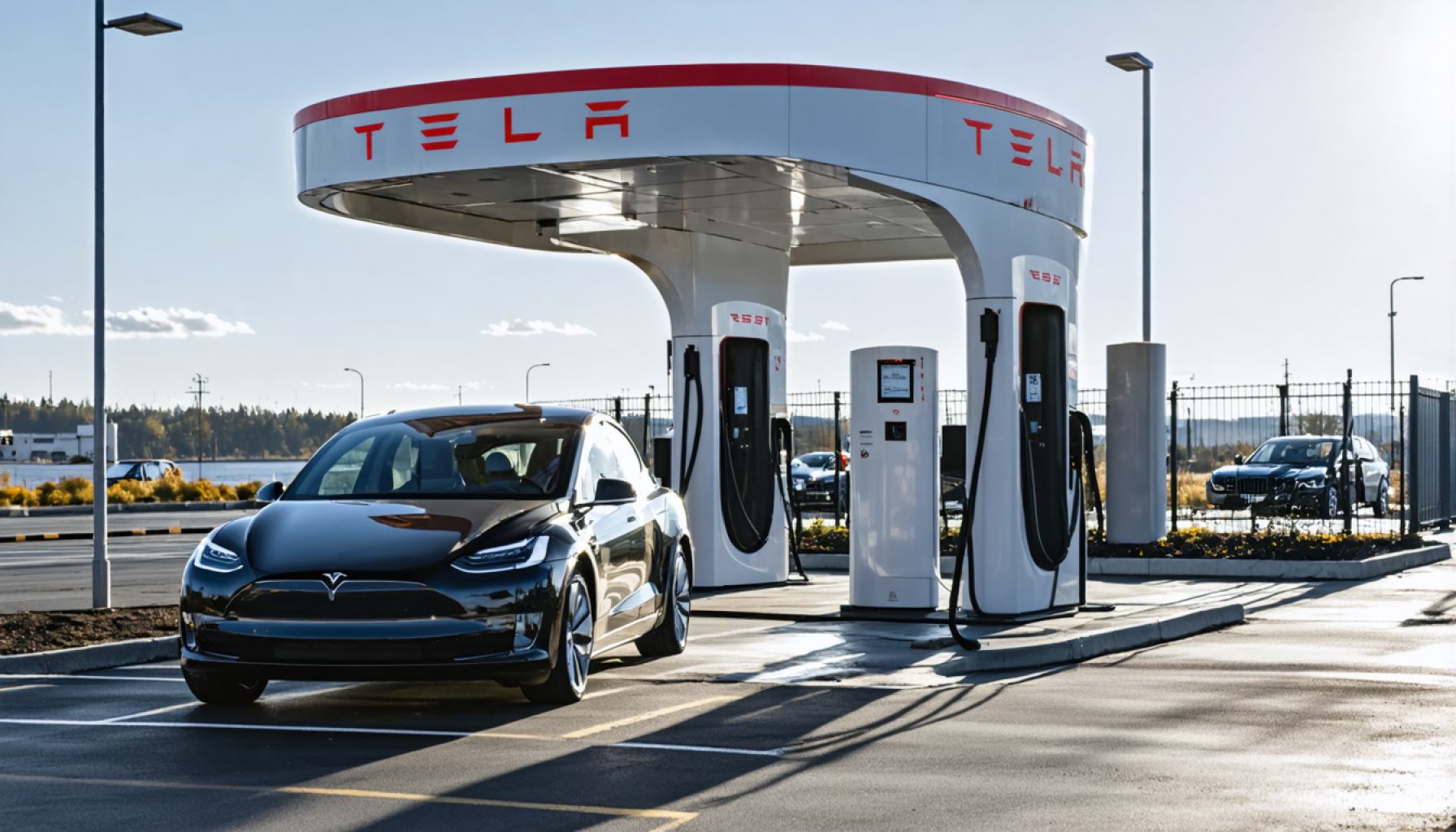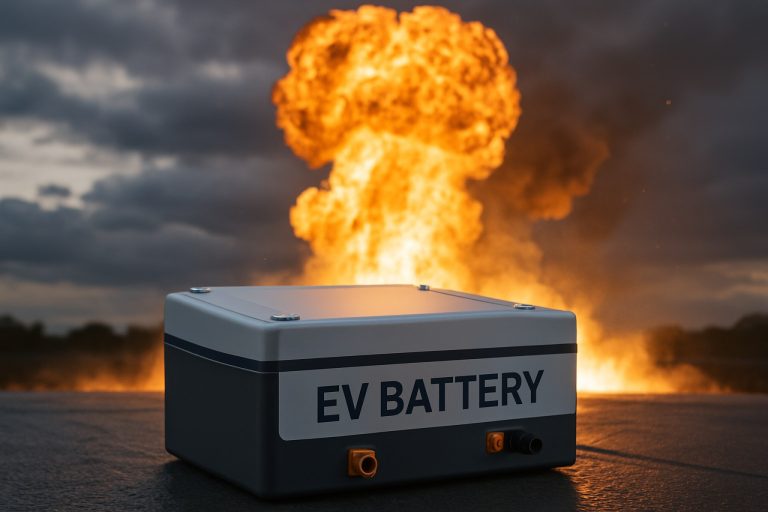
- Tesla is tactfully navigating challenges in Sweden’s labor landscape, including union tensions with IF Metall and strikes from others like Elektrikerna and Seko.
- The company has opened two new Supercharger stations in Södertälje, enhancing EV infrastructure and promoting a future less reliant on fossil fuels.
- Tesla’s decision to use foreign support to implement these projects sparked union opposition and an apology from Telge Nät, the network operator.
- The situation highlights a clash between corporate ambition and labor rights, with Telge Nät promising future compliance with union agreements.
- Tesla’s actions illustrate how modern industry can adapt to entrenched labor systems, balancing innovation and workers’ rights.
- The company is redefining interactions between global corporations and local labor systems, by promoting dialogue, respect, and relentless innovation.
Tesla’s journey through the Swedish labor landscape has been anything but smooth. Yet, the electric vehicle titan is skillfully navigating the choppy waters of union opposition with a precision that could rival its own autopilot technology. Against the backdrop of mounting tensions with IF Metall, a primary workers’ union, and a flurry of sympathy strikes from others like Elektrikerna and Seko, Tesla’s latest triumph has emerged—a testament to its strategic prowess.
In a striking twist, Tesla unveiled two gleaming new Supercharger stations in the city of Södertälje. This wasn’t just a victory for the company, but a boon for electric vehicle owners across Sweden. Nestled amidst the hustle of Moraberg’s shopping area stands a 16-stall station, while 20 additional posts rise proudly at Vasa Handelsplats. These aren’t just ordinary charging points; they are a clarion call for a future unshackled from fossil fuels, paving the way for seamless journeys across Sweden’s picturesque landscapes, from the bustling east coast through to the tranquil south.
But Tesla’s success didn’t come without ruffling feathers. The unions were left simmering. The company, seemingly unmoved by the resistance, brought in foreign support to light up the new Superchargers—a maneuver viewed with ire by the union body. This clever workaround even coaxed an apology from Telge Nät, the network operator involved. Their acknowledgment of inadvertently bypassing the intended halts sparked further dialogue—an olive branch extended but not without its share of turbulence.
The unfolding drama underscores a critical intersection—the clash between corporate ambition and collective labor rights. With Telge Nät stepping forward with promises to adhere to union agreements moving forward, it becomes evident that this saga is as much about power dynamics as it is about infrastructural expansion.
Tesla’s resilience paints a vivid picture of how modern industry might adapt to entrenched labor systems. These new Superchargers don’t just deliver power to vehicles; they signify Tesla’s indefatigable spirit. As we observe this evolving narrative, we’re reminded of the delicate balance between innovation’s relentless march and the foundational human rights that underpin labor movements.
In the midst of this electrifying conflict, one thing becomes clear—Tesla is not just revolutionizing transportation; it is redefining how global giants interact with local systems. Each new spark of energy at a Supercharger echoing with the silent roar of change, challenging the status quo and illuminating a path forward where dialogue, respect, and relentless innovation can coexist.
The Unstoppable Rise of Tesla: What Sweden’s Labor Tensions Reveal About the Future of EV Infrastructure
Navigating Tesla’s Complex Labor Landscape in Sweden
Tesla’s recent developments in Sweden showcase its strategic resilience amidst ongoing labor disputes, setting the stage for a transformative shift in electric vehicle (EV) infrastructure. Here’s a deeper dive into Tesla’s navigational strategies amid union tensions and what it means for the future of EVs in Sweden and beyond.
Enhanced Supercharger Infrastructure
Tesla’s unveiling of two new Supercharger stations in Södertälje marks a significant stride for EV infrastructure:
– Moraberg Site: Features 16 charging stalls for enhanced accessibility and convenience.
– Vasa Handelsplats: Offers 20 stalls, creating a robust network for EV users.
These stations symbolize Tesla’s dedication to bolstering charging availability, enabling effortless travel across Sweden, thus reinforcing its commitment to sustainable energy.
Key Considerations in Tesla’s Swedish Strategy
– Union Tensions: Tesla’s engagement with foreign support to establish the Superchargers has drawn criticism from Swedish labor unions. This highlights the broader challenge of navigating different labor laws and workers’ rights in global operations.
– Infrastructure Growth vs. Labor Rights: Tesla’s maneuvering in the Swedish labor market underscores the tension between rapid technological advancement and respecting local labor dynamics.
– Telge Nät’s Role: As a network operator, Telge Nät’s admission and future commitment to union agreements exemplify potential for resolving conflicts through dialogue and mutual respect.
Market Dynamics and Future Trends
– Market Forecast: As Tesla continues to expand its presence, Sweden’s EV market is poised for growth. Potential collaborations or confrontations with unions could shape Tesla’s market strategies and operations.
– Industry Trends: More automakers may follow Tesla’s lead in expanding charging infrastructures, increasing competition and innovation within the EV sector.
How Tesla Can Win Over Swedish Unions
1. Engagement: Open dialogue with unions to understand and address concerns can foster a cooperative environment.
2. Transparency: Clear communication about operations and workforce decisions can mitigate tensions.
3. Inclusive Growth Plans: Developing strategies that involve skilled local labor to support infrastructure projects could promote goodwill.
Pros and Cons Overview
Pros:
– Increased charging station availability enhances the convenience for EV users.
– Strengthens Tesla’s market position in Scandinavia, a region known for sustainability initiatives.
Cons:
– Union tensions might cause operational challenges.
– Potential reputational risks amid public labor disputes.
Expert Insights and Final Recommendations
Expert Opinion: Analysts suggest that Tesla’s approach might need a recalibration to better incorporate labor relations strategies. Ensuring the inclusion of unions in discussions around expansion could be crucial.
Actionable Tips:
– Utilization of local resources might alleviate union unease and promote smoother operations.
– Establishing a task force to handle labor relations specifically in new markets could be a proactive step.
Tesla’s saga in Sweden offers a model of both the potential and challenges in scaling EV infrastructure worldwide. For further insights into Tesla’s global operations and innovations, explore their latest updates at Tesla.



